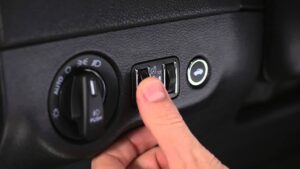Can battery corrosion keep a car from starting? The short answer is yes. When battery corrosion occurs, it can create a barrier between the battery terminals and the electrical connections, hindering the flow of power to start the car. Imagine being all set to hit the road, only to be met with a frustrating silence when you turn the key. That’s why understanding battery corrosion and its effects is crucial for car owners. In this article, we’ll delve into the causes of battery corrosion, its signs, and most importantly, the solutions to get your car up and running smoothly again. So, let’s jump right into it!
Can Battery Corrosion Keep a Car from Starting?
Introduction
When it comes to the operation of a car, the battery plays a crucial role. It provides the electrical power necessary to start the engine and operates various components such as lights, radio, and air conditioning. However, just like any other part of a vehicle, batteries are prone to issues. One common problem is battery corrosion. In this article, we will explore whether battery corrosion can prevent a car from starting and delve into the reasons behind it.
The Basics of Battery Corrosion
Battery corrosion occurs when the sulfuric acid in the battery reacts with the metal terminals, resulting in the formation of a white, flaky substance known as corrosion. It often accumulates on the battery terminals and cables, hindering the proper flow of electricity. As a result, the battery’s performance can be affected, potentially leading to starting issues.
How Battery Corrosion Affects Car Starting
Battery corrosion can impede the flow of electrical current between the battery and the rest of the vehicle’s electrical system. Here are the key ways in which battery corrosion can impact a car’s starting:
1. Reduced Current Flow: Corrosion on the battery terminals acts as a barrier and restricts the flow of electricity. This reduces the current reaching the starter motor, which requires a significant amount of power to crank the engine.
2. Poor Connection: Corrosion can weaken the connection between the battery terminals and the cables. This results in a poor electrical connection, reducing the efficiency of power transfer to the various electrical components, including the ignition system.
3. Faulty Grounding: Battery corrosion can also affect the grounding of the vehicle’s electrical system. Grounding ensures that the electrical current flows through the intended path, preventing electrical malfunctions. Corrosion disrupts this grounding, potentially causing starting issues.
Signs of Battery Corrosion
It’s important for car owners to be aware of the signs of battery corrosion. Identifying the issue early can help prevent more severe problems down the line. Here are some common indicators of battery corrosion:
1. Visible Corrosion: Look for a white, ashy substance on the battery terminals and cables. This is a clear sign of corrosion.
2. Difficulty Starting: If your car is struggling to start or takes longer than usual to crank, it may be due to battery corrosion affecting the electrical current flow.
3. Dim Lights and Electrical Issues: Corrosion can cause electrical components, such as headlights and interior lights, to appear dim or flicker. Additionally, you may experience issues with the radio, power windows, or other electrical functions.
4. Battery Warning Light: Many modern cars have a battery warning light on the dashboard. If it illuminates, it could indicate battery-related issues, including corrosion.
Preventing Battery Corrosion
While battery corrosion is a common problem, there are steps you can take to prevent it. Here are some preventative measures car owners can implement:
1. Regular Cleaning: Clean the battery terminals and cables regularly using a solution of baking soda and water. Be sure to disconnect the cables before cleaning and reconnect them securely afterward.
2. Protective Coating: Apply a thin layer of petroleum jelly or battery terminal spray after cleaning to help prevent future corrosion. These coatings act as a barrier between the metal and the corrosive elements.
3. Maintain Proper Ventilation: Ensure that the battery is adequately ventilated. Excessive heat can accelerate the corrosion process. If necessary, clean or replace any corroded battery vent caps.
4. Check for Acid Leaks: Inspect the battery for any signs of acid leaks, such as discoloration or strange odors. Acid leaks can contribute to corrosion, so it’s important to address them promptly.
Dealing with Battery Corrosion
If you encounter battery corrosion despite taking preventive measures, it’s important to know how to address it effectively. Here are steps you can take to deal with battery corrosion:
1. Safety First: Before attempting any maintenance on the battery, make sure the engine is off, and wear protective gloves and eyewear to avoid contact with corrosive substances.
2. Disconnect the Cables: Start by disconnecting the negative (black) terminal first, followed by the positive (red) terminal. This prevents accidental short circuits during cleaning.
3. Cleaning the Terminals: Use a wire brush or a battery terminal cleaner to gently remove the corrosion from the battery terminals and cable ends. Ensure that the connections are completely clean before reattaching the cables.
4. Reconnecting the Cables: Reconnect the positive (red) cable first and then the negative (black) cable. Ensure they are securely tightened.
5. Applying a Protective Coating: As a final step, apply a thin layer of petroleum jelly or battery terminal spray to the clean terminals and cable ends. This helps protect against future corrosion.
In conclusion, battery corrosion can indeed prevent a car from starting. The accumulation of corrosion on the battery terminals and cables hinders the flow of electricity, reducing the performance of critical components like the ignition system and starter motor. By understanding the impact of battery corrosion and implementing preventative measures, car owners can minimize the risk of starting issues and ensure the smooth operation of their vehicles.
Frequently Asked Questions
Can battery corrosion prevent a car from starting?
Yes, battery corrosion can indeed prevent a car from starting. When a car battery becomes corroded, it can interfere with the flow of electricity between the battery and the engine, leading to various starting issues.
What causes battery corrosion?
Battery corrosion is primarily caused by the buildup of sulfuric acid residue around the battery terminals. This residue is a byproduct of the chemical reaction that takes place inside the battery. Factors such as heat, humidity, and battery age can accelerate the corrosion process.
How does battery corrosion affect car starting?
Battery corrosion can create a barrier between the battery terminals and the cables, preventing the electrical current from flowing smoothly. As a result, the car may experience difficulty in starting or fail to start altogether.
How can I determine if battery corrosion is the cause of my car not starting?
To check if battery corrosion is the culprit behind your car’s starting issue, you can visually inspect the battery terminals. If you notice a white, chalky substance or greenish-blue deposits around the terminals, it is a clear indication of corrosion. Additionally, a voltmeter can be used to measure the voltage levels of the battery.
Can I fix battery corrosion myself?
Yes, you can attempt to clean battery corrosion yourself. However, it is important to take proper safety precautions, such as wearing gloves and eye protection, as battery acid can be harmful. You can remove the corrosion by using a mixture of baking soda and water, a wire brush, and a battery terminal cleaner. If you are uncomfortable or unsure, it is advisable to seek professional assistance.
How can I prevent battery corrosion in the future?
To prevent battery corrosion, you can regularly clean the battery terminals and cables with a wire brush and apply a battery terminal protector or petroleum jelly to inhibit future corrosion. Additionally, ensuring that the battery is securely fastened and keeping the battery and its surroundings clean and dry can help prevent corrosion.
Final Thoughts
Battery corrosion can indeed prevent a car from starting. When corrosion accumulates on the battery terminals, it creates a barrier that disrupts the flow of electrical current. As a result, the battery may not be able to deliver the necessary power to start the car’s engine. To avoid this issue, it is important to regularly check and clean the battery terminals. By removing the corrosion and ensuring a secure connection, you can prevent the frustrating experience of a car not starting due to battery corrosion. So, can battery corrosion keep a car from starting? Yes, it can, but with proper maintenance, this issue can be easily avoided.


